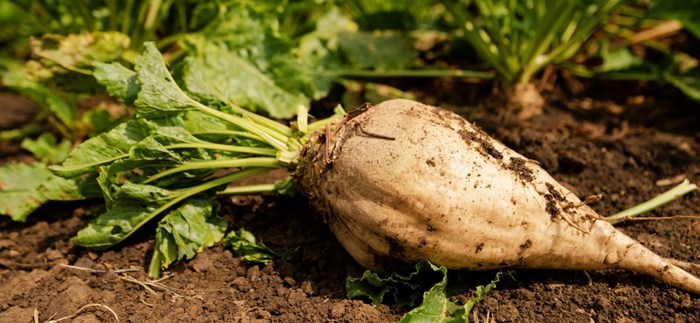- 17 December 2020

Shortage of beet pulp feed expected after sugar beet sell-out
In his latest blog, Feed Manager & Farm Trader Alasdair Ralston explains why farmers can expect to find a lot less beet pulp feed around for the foreseeable future.
In the UK, sugar beet is predominantly grown in southern England, with the root of the crop made up of approximately 75% water, 20% sugar and 5% beet pulp.
The beet pulp – a by-product of this growing of sugar beet – has been a mainstay in the feed industry for many years because it contains a lot of residual sugars and is number one in the supply of digestible fibre, so it has high nutritional value for animals.
Back when I was studying at Harper Adams University, the value of beet pulp was described to me by my lecturer as like being on a stag do. When you drink lots of alcohol and eat poorly for three or four days, you won’t feel great for a while afterwards because you lose that balance in your diet. Animals have got to be really balanced as well and the digestible fibre in beet pulp makes them a lot healthier. There are not many products that will ever have the same effect.

For higher performance animals, the more important this balance is. It’s just the same for humans in that high-performance athletes are far stricter on what their diet needs to be in order to perform at the highest level.
So there’s little doubt that beet pulp is an important feed option for farmers throughout the UK.
However, this year, there is concern over a shortage of beet pulp for the feed industry, due to the fact that some of the insecticides that could previously be used on the sugar beet have now been withdrawn. As a result, there is expected to be a significant yield reduction in sugar beet down in England, with some predicting by as much as 30%.
This will have a direct impact on the beet pulp produced for the animal feed industry and, as things stand, UK sugar beet is sold out until next harvest, which will probably be October at the earliest. With supply way less than the demand right now, it comes as no surprise, then, that the price of sugar beet has increased quite rapidly.
The withdrawal of insecticides is becoming increasingly commonplace with the drive towards more environmentally friendly and sustainable ways of farming, but this development is sure to have effects on both the sugar and feed industries in the next few years.
Interested in speaking to our livestock feed team? Contact us today and let us become your partners in farming.

